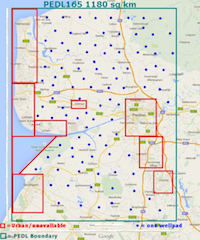Lies, Damned Lies and Polls
It is a common tactic of PR campaigns to try to capitalise on people’s natural group behaviour by presenting the desired opinion as a majority. This media manipulation technique is called ‘appeal to consensus’ as most people instinctively want to be considered ‘normal’.
One way of doing this is to create a poll that you hope will allow you to present your case as the opinion of the majority.
We have seen this happening several times over the last few weeks.
Firstly we had the Sun’s now infamous report that 73% of people support shale gas when their poll actually showed 52% against. This is currently subject to an ongoing Press Complaints Commission complaint.
Then we had the Daily Mail’s poll which ended up 50/50 – a quite surprising failure for the pro-frackers given that paper’s constant cheerleading for fracking.
Then, by contrast, we had the Mirror which had 93% of people voting against fracking.
It’s interesting to seem how existing political viewpoints would seem to play such an obvious part in opinion forming so far isn’t it?
This week though we we very concerned to read the Blackpool Gazette’s report of the results of a poll by YouGov and The University of Nottingham.
Here is how they reported it
‘More people accept fracking’ says study
by Rebecca Draper
[email protected]Published on the 10 August
2013
09:00More people than ever are in favour of ‘fracking’ for shale gas, according to new research.
A national survey has been carried out by Nottingham University and the pollsters YouGov, with figures collated from last month, March and June 2012.
And they claim an increase in the number of people who are accepting of the exploration method.
In July 2012 more than 52 per cent people questioned were in favour of fracking – the process of injecting fluid into the ground at high pressure to fracture shale rock and release the gas inside – and 27 per cent were against, they claimed.
In March this year 55 per cent were for and around 24 per cent were against and last month 58 per cent supported fracking while nearly 19 per cent opposed it.
Francis Egan, chief executive of Cuadrilla Resources, which has fracking sites on the Fylde, said: “Viewed over the last year, the University of Nottingham’s research shows that growing numbers of people support shale gas exploration.
“Cuadrilla has consistently maintained that most people in the UK are open-minded about this issue. From our own experience in Lancashire, the more people hear about and talk about shale gas, the more informed they are about its potential advantages. We will continue communicating the facts about shale gas to local communities as our Bowland Basin exploration plans proceed.”
”
Having read the press release form the University of Nottingham we can’t see any reference at all to support the statement that “last month 58 per cent supported fracking while nearly 19 per cent opposed it.”. Maybe the Gazette have access to data which is not in the PR?
Interestingly in the YouGov Sunday Times poll at the beginning of August we can see that first of all
Britons tend to support the country starting to extract shale gas using fracking technology, by 41% to 33% although a quarter (26%) of the population still don’t know where they stand on the issue, suggesting its impacts may indeed be “unknown” to many
and further that
voters are more likely to think fracking in their own local town or area would be a bad thing (43%) than to think it would be a good thing (25%). Although again, a significant proportion (18%) don’t know how they feel.
This is a far distance from 58% being in favour isn’t it?
Of course this maybe the Balcombe effect at work with public opinion swinging away from shale as more people get a whiff of grapeshot
What is also extremely interesting from the latest YouGov Poll is that it shows that shale as has the lowest approval rating of any energy source.
When asked whether “The government is right to spend money encouraging this form of energy” the scores were as follows
Solar 78%
Tidal 76%
Clean Coal Power 57%
Wind 65%
Nuclear 49%
Power from Shale gas 40%
It seem the PR companies still have a bit more work to do.
































